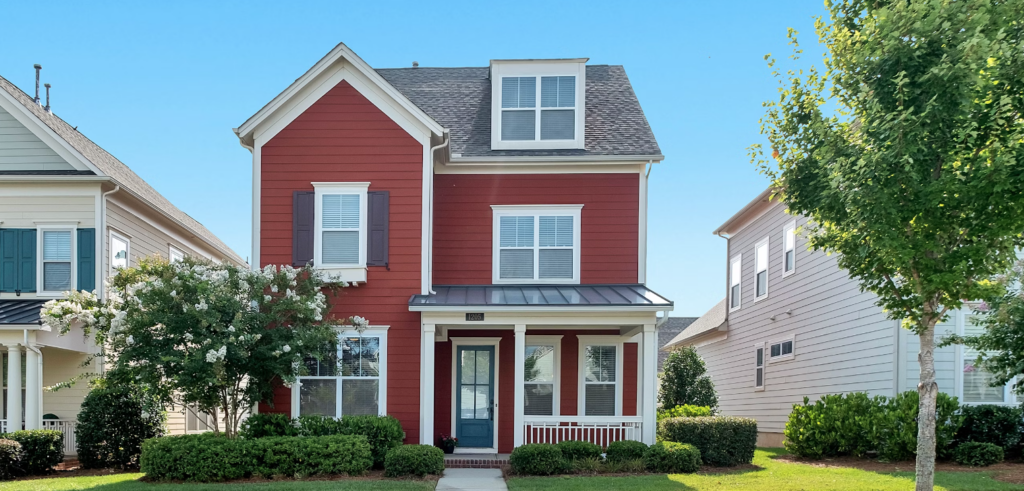Selling your home is a big deal, but getting an offer doesn’t mean it’s a done deal. It usually takes about 50 days from getting an offer to closing, and a lot can happen in that time.
To help you understand what could go wrong and why pending home sales fall through, we’ve put together this guide.

What Is A Pending Sale?
When a seller accepts a buyer’s offer, the sale is considered pending until it’s closed.
Sometimes, there are conditions that need to be met before the sale is final. These are called contingencies, and they can include things like a home inspection or getting financing.
Reasons Why Pending Home Sales Fall Through
Understanding why sales fall through can help you avoid it happening to you.
1. Buyer’s mortgage application is declined: When buyers apply for a mortgage, they undergo a thorough evaluation of their financial history, credit score, and income. If they don’t meet the lender’s requirements or if there’s a change in their financial situation during the process, their mortgage application may be denied. This often occurs because many buyers heavily rely on financing to purchase a home, and any hiccups in the mortgage approval process can derail the sale.
2. Major issues surface during the home inspection: Home inspections are a crucial step in the home buying process where a professional inspector examines the property for any structural or safety issues. If significant problems like mold infestation, foundation issues, or roof damage are discovered during the inspection, buyers may reconsider their decision to purchase the home. These issues can lead to negotiation for repairs or even cancellation of the sale if the seller is unwilling to address them adequately.
3. The buyer is inexperienced: First-time homebuyers may face challenges navigating the complexities of the real estate transaction process. They may underestimate the time and effort required to secure financing, find the right property, and complete the necessary paperwork. Additionally, inexperienced buyers may be more prone to making mistakes or miscalculations during negotiations, leading to delays or cancellations of the sale.
4. The home gets appraised lower than the sale price: Lenders require an appraisal to determine the fair market value of the property before approving a mortgage loan. If the appraised value comes in lower than the agreed-upon sale price, it can create issues for both the buyer and seller. The buyer may struggle to secure financing for the full purchase amount, leading to renegotiations or termination of the sale. Similarly, sellers may be unwilling to lower the price or may not have the flexibility to do so, resulting in a collapsed deal.
5. The buyer can’t sell their existing home: In scenarios where a buyer needs to sell their current home before purchasing a new one, the sale of their existing property becomes a critical factor in the transaction. If their home fails to sell within the specified timeframe or if they encounter challenges in finding a buyer, it can delay or prevent them from moving forward with the purchase of the new home. This contingency introduces uncertainty and risk into the transaction, increasing the likelihood of the sale falling through.
6. There are property liens or a title issue: Before the sale can proceed, a thorough title search is conducted to identify any outstanding liens, judgments, or title defects associated with the property. If unresolved issues are discovered, such as unpaid property taxes, mechanic’s liens, or conflicting ownership claims, it can hinder the transfer of ownership and jeopardize the sale. Resolving these title issues can be time-consuming and costly, leading to delays or cancellation of the transaction if not addressed promptly.
Understanding these potential pitfalls can empower both buyers and sellers to navigate the home buying process more effectively and mitigate the risks associated with pending home sales. By proactively addressing any issues and working closely with experienced professionals, parties can increase the likelihood of a successful and seamless transaction.
What You Can Do To Help Prevent A Sale Falling Through
1. Be picky about offers: The highest offer isn’t always the best one. Look at things like how likely the buyer is to close and what conditions they have.
2. Get a pre-inspection: Find out about any problems with your house before you list it so you can fix them or tell buyers about them upfront.
3. Consider saying no to home sale contingencies: If a buyer needs to sell their house before they can buy yours, think about saying no or including a clause that lets you keep looking for other buyers.
4. Give the appraiser all the facts: Tell the appraiser about any improvements you’ve made to the house and why your neighborhood is special.
5. Think about selling to a cash buyer: Companies like PropertyPal can give you a cash offer for your house without worrying about the deal falling through.
Conclusion
Selling your home can be stressful, but knowing what could go wrong and how to prevent it can help.
By being careful about who you sell to and being upfront about any issues with your house, you can increase your chances of a successful sale.
P.S. Looking to sell your home with a much higher chance of a successful closing? Consider PropertyPal. We help home sellers sell their property quickly so they can move on with their life and enjoy peace of mind.
